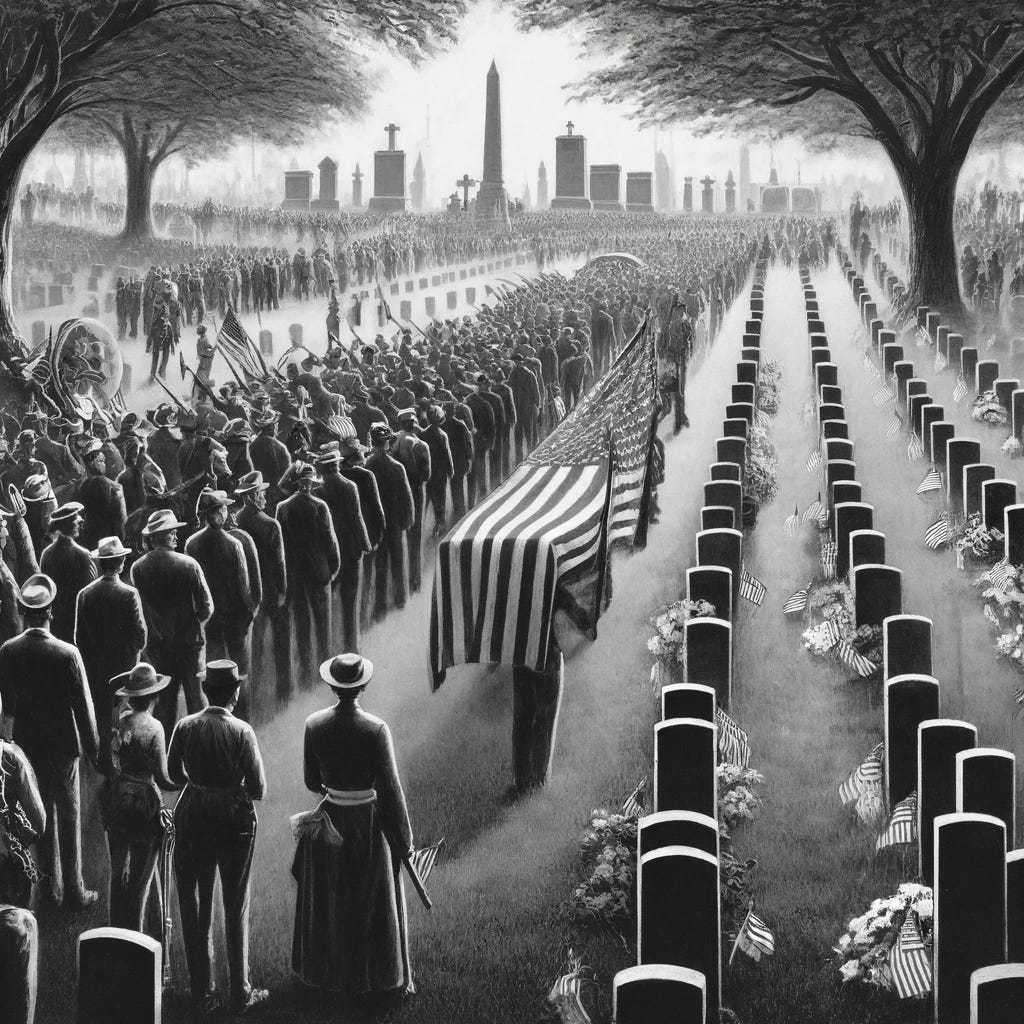Memorial Day: Honouring the Fallen Heroes
Origin and observance of Memorial Day in the USA, its significance for Indian-Americans who remember their ancestors' sacrifices in global conflicts and emphasizing the universal need for peace.
Origins of Memorial Day
Memorial Day, observed on the last Monday of May, is a federal holiday in the United States dedicated to honouring and remembering the men and women who have died in military service to the Nation. Its origins date back to the aftermath of the American Civil War, a conflict that claimed more lives than any other war in American history, necessitating the establishment of the country's first national cemeteries. Initially known as Decoration Day, the holiday was designated as a time for Americans to decorate the graves of fallen soldiers with flowers, a tradition that began in the late 1860s.
How Memorial Day is Observed
Memorial Day is marked by various commemorative events across the United States. Many Americans participate in parades, visit cemeteries and memorials, and hold family gatherings. The National Memorial Day Concert, held on the West Lawn of the United States Capitol, features performances by the National Symphony Orchestra and military bands, accompanied by stories of heroism and sacrifice. The President or Vice President traditionally lays a wreath at the Tomb of the Unknown Soldier in Arlington National Cemetery, symbolising the nation's respect and gratitude for the sacrifices made by its military personnel.
The Evolution into a Federal Holiday
In 1971, Memorial Day was declared a national holiday by an act of Congress, and its observance was shifted from 30th May to the last Monday in May, creating a long weekend for many Americans. This change was intended to encourage greater participation in the holiday's observance and provide an opportunity for Americans to reflect on the sacrifices made by those in the armed forces.
An Indian Perspective: Remembering Ancestors
For many first or second-generation Americans of Indian origin, Memorial Day is not only a time to honour American soldiers but also to remember their own ancestors who fought and laid down their lives for the Allied Forces during the two World Wars. Indian soldiers, serving under British command, played crucial roles in various theatres of war, from the Western Front to the deserts of North Africa. Their bravery and sacrifices are remembered with pride and respect, and Memorial Day provides an opportunity to acknowledge these contributions in a broader context of global military service.
Martyrs' Day in India
India has its own days of remembrance, notably Martyrs' Day (Shaheed Diwas), observed on 30th January to commemorate the assassination of Mahatma Gandhi in 1948. This day honours all martyrs who sacrificed their lives for the nation's freedom and integrity. Ceremonies and events are held across the country, including the President, Prime Minister, and other dignitaries paying homage at Raj Ghat, Gandhi's memorial in New Delhi.
A Call for Global Peace
In the current global climate, with conflicts such as the Israel-Hamas confrontation and the ongoing threat posed by the proliferation of nuclear weapons, it is more important than ever to strive for peace and understanding. Memorial Day serves as a poignant reminder of the cost of war and the value of peace. As we honour those who have made the ultimate sacrifice, let us also renew our commitment to building a more peaceful world, where future generations can live free from the fear of conflict and violence.
By reflecting on the sacrifices made by soldiers worldwide, including those from diverse backgrounds such as Indian-Americans, we can foster a deeper appreciation for the shared values of courage, duty, and service that transcend national borders. This Memorial Day, let us come together in remembrance and in hope for a brighter, more peaceful future.





